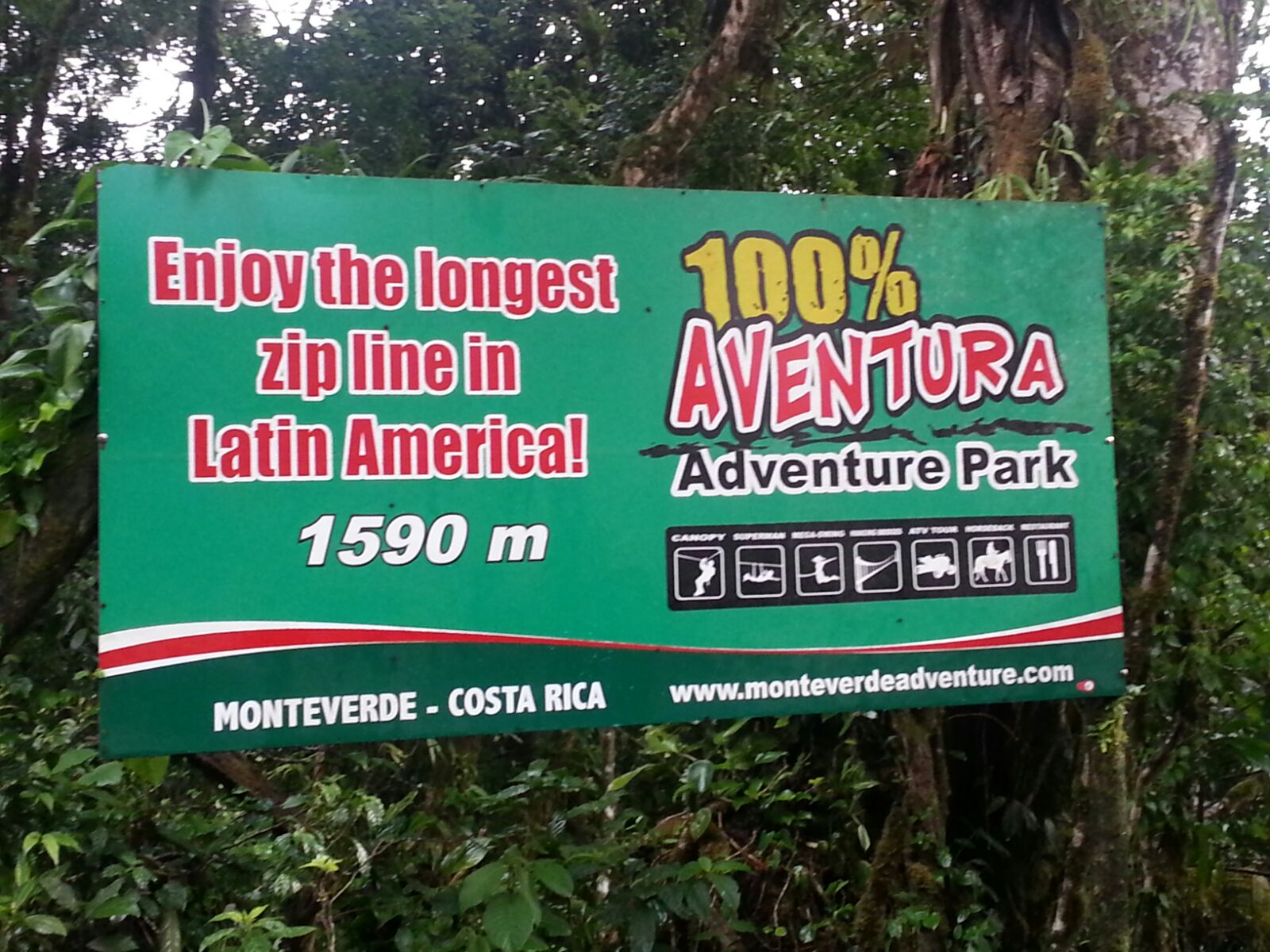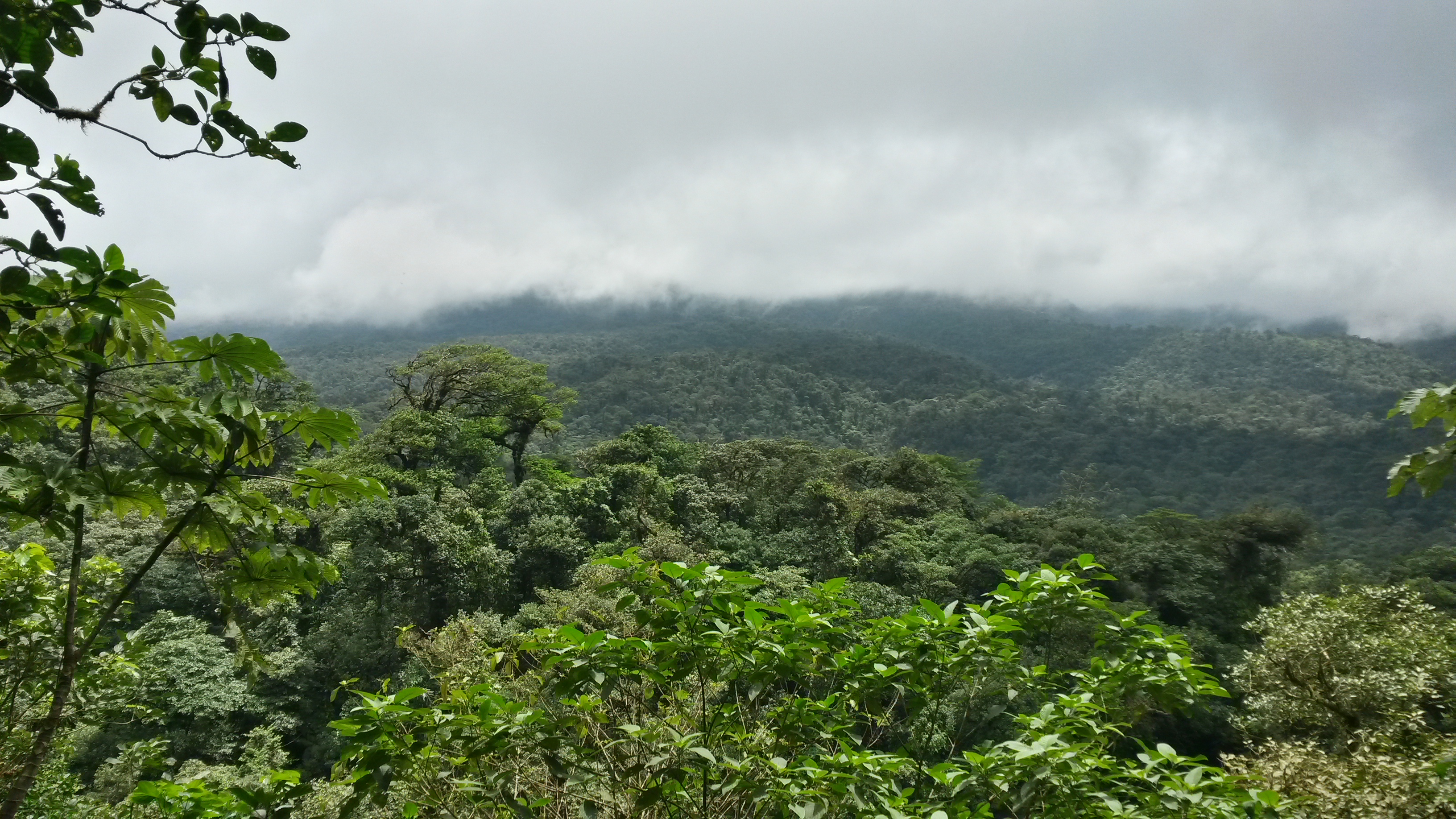“Costa Rica is so expensive”. That’s the reaction of many travelers who come to the Switzerland of Central America. And it’s true that it may be more expensive than other Latin American countries. But it is such a gorgeous, varied travel destination you surely won’t regret!
Also, how often are you in Costa Rica? Do you really want to skip a rafting tour because it costs 70$ and thereby miss a one-time experience? Keep in mind that saving money sometimes means cutting on fun! Here are some helpful tips on how you can save money when traveling around or on the weekends during your Spanish study.
Accommodation
Stay in hostels! You can find many nice, cheap hostels in Costa Rica (from 7$ per night). If you book them through pages like booking.com, look for their daily specials.
in Costa Rica (from 7$ per night). If you book them through pages like booking.com, look for their daily specials.
Apart from this, why not use private offers from locals? On pages like HomeAway, VRBO and Airbnb, locals offer a stay for little money. And on Couchsurfing, you even find a free stay and get in touch with some ticos!
Activities
Always compare tour prices. The same tour could be more expensive in the tourist information center than on the front desk of your hostel . If you want to go hiking in a forest, think about the need of a guide. Observing animals is easier with them and they will explain a lot of interesting things about the nature. But after a few trips, you could also do it on your own and save the guide fee for another tour.
. If you want to go hiking in a forest, think about the need of a guide. Observing animals is easier with them and they will explain a lot of interesting things about the nature. But after a few trips, you could also do it on your own and save the guide fee for another tour.
Eating
Eat like a local! This is where you might save the most and usually one of the main “expensive” claims. Choose the sodas which offer affordable local food (3-6$) instead of expensive restaurants (about 10-20$). Bakeries or street vendors are also good. Look for the places that you see packed of ticos at lunch and not the tour buses.
Furthermore, many hostels have a little kitchen area that you can use. By sometimes cooking your own food, you can save a lot of money. Another money-saving idea is the water. Apart from the port cities of Limón and Puntarenas and a couple of other places, water just off the tap is potable. However, remember that you may need some time to adjust to the type of water. At school, you can fill your bottles with the filtering water machine, so bring your reusable bottle and use it often!
Pack a good sandwich when traveling or when going on a tour and bring a snack. This will save on lunch money in touristic places that might be expensive.
Know the currency
Economically, it’s best to pay in cash in colones. However, in most places and situations, US dollars are accepted, too. The change will be in colones. Usually, Costa Ricans are honest people, but there are always exceptions. So keep the currency in mind to be able to check the accuracy of the change to avoid getting ripped off.
Although we love the convenience of credit cards, you can get discounts in many places when paying cash (always ask!), specially when unfolding considerable amounts.
Take the public bus
Getting around in Costa Rica might be more convenient and faster in a private bus. But it will cost you many times more! You can travel around (virtually everywhere) by taking the convenient and punctual public buses for little money (a private bus can cost 45$ whereas the same route only costs 6$ in a public one). Ask at the school desk for bus information, although many routes now have their own websites with updated info.
Take taxis smartly
When taking a taxi, negotiate the price in advance or be sure the taximeter is on. If not, you can just ask the driver to please “ponga la María”. Before starting the drive, check the taximeter: it should either say “día”, “sedan” or “Nr. 1”. If another number or “noche” appear, you’ll pay a multiple of the regular price!
Some apps may help you with your calculations too: Taxiando, SayTaxi, but always use some common sense for traveling by taxi, specially if you already know the routes. And remember, rush hour in Costa Rica is the same as everywhere else!
Cosmetics
Buy the cosmetics before getting to Costa Rica! Especially cosmetics like after-sun lotion, sunscreen and insect repellent are quite expensive here.
Traveling intensively vs. traveling much
Costa Rica offers many gorgeous places, which could easily tempt you to want to see as many as possible. But why not restrict to a few different, beautiful places and do them intensively? Thereby you can get in touch with locals better and experience their culture. Furthermore, it’s less stressful and you can invest the saved additional transport costs (and time!) for another activity.
Travel in the “green season”
If you have the choice, travel in the so called “rainy” or “green season” (May to November). Many tourists are scared off by the rain. But there are so many advantages this season offers:
Many accommodations drop their prices significantly, parks are not overcrowded, the forest comes alive, and you will be able to experience a tropical rain in a rainforest! Rainy season means it rains more, not necessarily all the time.
Bring your student card
If you have one: bring it! Always ask if there are any student discounts, many parks and other activities (canopy, museums, theatres, cinemas…) offer significant discounts for students. The school will also provide a card stating you’re an Academia Tica student.
Read it in Spanish!
¿Cuántas veces vas a estar en Costa Rica? ¿De verdad vas a omitir un tour de rafting porque cuesta $70 y así renunciar a una experiencia única? ¡Ten en cuenta que ahorrar dinero a veces significa acortar la diversión! Aquí hay unos consejos de cómo ahorrar dinero mientras viajas por Costa Rica durante tu estadía de estudio.
Hospedaje
¡Pasa las noches en hostales! Puedes encontrar un montón de hostales bonitos y baratos en Costa Rica (desde 7$ por noche). Si los reservas usando páginas como booking.com, busca las ofertas especiales del día. Además, ¿por qué no aprovechar las ofertas de personas privadas? En páginas como HomeAway, VRBO y Airbnb los locales ofrecen hospedajes por poco dinero. ¡Y en Couchsurfing, vas a encontrar incluso hospedajes gratis y puedes conocer a ticos!
usando páginas como booking.com, busca las ofertas especiales del día. Además, ¿por qué no aprovechar las ofertas de personas privadas? En páginas como HomeAway, VRBO y Airbnb los locales ofrecen hospedajes por poco dinero. ¡Y en Couchsurfing, vas a encontrar incluso hospedajes gratis y puedes conocer a ticos!
Actividades
¡Siempre compara los precios de las excursiones! El mismo tour podría ser ofrecido por el centro de información turístico más caro que en la recepción en tu hostal. Si quieres hacer una caminata por algún bosque, piensa si de verdad necesitas un guía. Observar animales es más fácil con ellos y te van a explicar mucho sobre la naturaleza. Pero después de unas caminatas, podrías hacerlas sin guía y ahorrar estos costos para otras aventuras.
Alimentación
Come como los locales. Con este punto podrías ahorrar mucho y es generalmente una de las quejas por las que se dice que Costa Rica “es caro”. Escoje las sodas que ofrecen comida típica y económica (3-6$) en lugar de los restaurantes caros (10-20$). Las panaderías y los vendedores en las calles también son buenos. Busca lugares que ves llenos de ticos durante el almuerzo y no donde están los buses de turismo.
Además, en muchos hostales hay cocinas que puedes usar. Una posibilidad adicional para ahorrar dinero es el agua. Aparte de las ciudades portuarias y otro par de lugares, el agua del tubo (grifo) es potable en Costa Rica. Recuerda que puede llevar un tiempo ajustarte al tipo de agua. En la escuela puedes usar las máquinas de agua filtrada, así que trae tu botella reusable y utilízala frecuentemente.
Llévate un buen sandwich (emparedado) a las excursiones o cuando viajas y también una merienda. Así podrás ahorrar en almuerzos que pueden ser bastante caros en los lugares turísticos.
Conoce el tipo de cambio
Económicamente, lo mejor es pagar en efectivo en colones. No obstante, en la mayoría de los lugares y situaciones puedes también pagar con dólares estadounidenses (USD). El cambio será en colones. Por eso, ten presente el tipo de cambio para evitar ser estafado.
Aunque nos encante la conveniencia de las tarjetas de crédito, muchas veces puedes obtener descuentos si pagas en efectivo (pregunta siempre), especialmente si vas a desembolsar un monto considerable.
Toma el bus público
Viajar en Costa Rica podría ser más conveniente y rápido en los buses privados. Pero estos también costarán múltiples veces más. Puedes viajar tomando los buses públicos, que también son puntuales y convenientes y más baratos (un viaje que cuesta 45$ en un bus privado puede costar solo 6$ en un bus público).
Usa los taxis inteligentemente
Cuando tomas un taxi, deberías negociar el precio por adelantado o asegúrarte que el taxímetro está funcionando. Si no, pídele al taxista que “ponga la María“. Antes de iniciar el viaje, observa el taxímetro: debería decir “día“, “sedán” o “Nr. 1“. Si aparece otro numero o dice “noche“, pagarás más del precio real.
Algunas aplicaciones para tu celular te pueden ayudar con los cálculos: Taxiando, SayTaxi, pero siempre usa un poco de sentido común al viajar con taxis, especialmente si ya conoces las rutas. Y recuerda, la hora pico en Costa Rica es igual a la hora pico en cualquier otro lugar.
Cosméticos
¡Compra las cosméticos antes de llegar a Costa Rica! Sobre todo cosméticos como productos hidratantes para después de tomar sol, crema de protección contra el sol (bloqueador) y repelentes de insectos son bastante caros aquí.
Viaja intensamente vs. viaja mucho
Costa Rica ofrece un montón de lugares maravillosos que podrían hacerte querer ver lo más posible. ¿Pero por qué no limitarte a algunos lugares bonitos y diferentes y hacerlo intensivamente? Así es más fácil conocer a gente local y experimentar su cultura. Además es menos estresante y puedes invertir los costos de los transportes (¡y tiempo!) para actividades adicionales.
Viaja en la “temporada verde”
Si puedes elegir, viaja en la época de las lluvias/verde (de mayo a noviembre). Muchos turistas se intimidan por la lluvia. Pero hay tantas ventajas que esta época ofrece: muchos hospedajes bajan el precio significativamente, los parques no están llenos, el bosque se pone vivo y ¡podrás experimentar la lluvia tropical en un bosque lluvioso! La temporada lluviosa significa que llueve más, no que llueve todo el tiempo.
Lleva tu tarjeta estudiantil
Si la tienes: ¡tráela! Siempre pregunta si hay algún descuento para estudiantes, muchos parques y otras actividades (canopy, museos, teatros, cines…) ofrecen descuentos significativos para estudiantes. Además, Academia Tica proveerá un carnet que te identifica como su estudiante.



Hola, las informaciones son muy interesantes. Yo quisiera visitar Costa Rica y participar en un curso de español en la Academia Tica. Ya estuve alli, y me gusta bien la escuela. Saludos Gudrun Mroncz